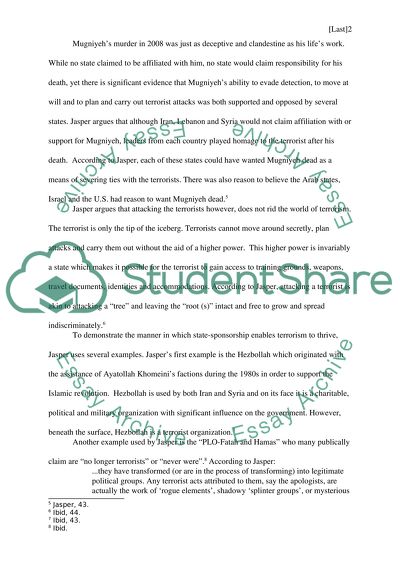Cite this document
(“No State Sponsors, No Terror argument Research Paper”, n.d.)
Retrieved from https://studentshare.org/history/1614701-no-state-sponsors-no-terror-argument
Retrieved from https://studentshare.org/history/1614701-no-state-sponsors-no-terror-argument
(No State Sponsors, No Terror Argument Research Paper)
https://studentshare.org/history/1614701-no-state-sponsors-no-terror-argument.
https://studentshare.org/history/1614701-no-state-sponsors-no-terror-argument.
“No State Sponsors, No Terror Argument Research Paper”, n.d. https://studentshare.org/history/1614701-no-state-sponsors-no-terror-argument.


